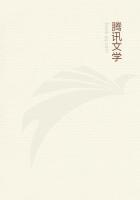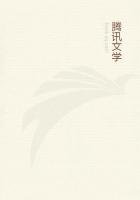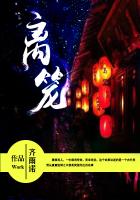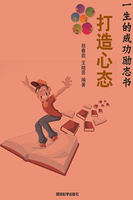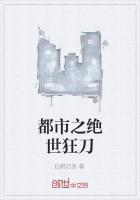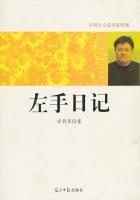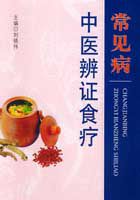But nature makes nothing in vain, and this little superfluity of self-regard in the English brain, is one of the secrets of their power and history. For, it sets every man on being and doing what he really is and can. It takes away a dodging, skulking, secondary air, and encourages a frank and manly bearing, so that each man makes the most of himself, and loses no opportunity for want of pushing. Aman's personal defects will commonly have with the rest of the world, precisely that importance which they have to himself. If he makes light of them, so will other men. We all find in these a convenient meter of character, since a little man would be ruined by the vexation. I remember a shrewd politician, in one of our western cities, told me, "that he had known several successful statesmen made by their foible." And another, an ex-governor of Illinois, said to me, "If a man knew any thing, he would sit in a corner and be modest;but he is such an ignorant peacock, that he goes bustling up and down, and hits on extraordinary discoveries."There is also this benefit in brag, that the speaker is unconsciously expressing his own ideal. Humor him by all means, draw it all out, and hold him to it. Their culture generally enables the travelled English to avoid any ridiculous extremes of this self-pleasing, and to give it an agreeable air. Then the natural disposition is fostered by the respect which they find entertained in the world for English ability. It was said of Louis XIV., that his gait and air were becoming enough in so great a monarch, yet would have been ridiculous in another man; so the prestige of the English name warrants a certain confident bearing, which a Frenchman or Belgian could not carry. At all events, they feel themselves at liberty to assume the most extraordinary tone on the subject of English merits.
An English lady on the Rhine hearing a German speaking of her party as foreigners, exclaimed, "No, we are not foreigners; we are English; it is you that are foreigners." They tell you daily, in London, the story of the Frenchman and Englishman who quarrelled.
Both were unwilling to fight, but their companions put them up to it: at last, it was agreed, that they should fight alone, in the dark, and with pistols: the candles were put out, and the Englishman, to make sure not to hit any body, fired up the chimney, and brought down the Frenchman. They have no curiosity about foreigners, and answer any information you may volunteer with "Oh, Oh!" until the informant makes up his mind, that they shall die in their ignorance, for any help he will offer. There are really no limits to this conceit, though brighter men among them make painful efforts to be candid.
The habit of brag runs through all classes, from the Times newspaper through politicians and poets, through Wordsworth, Carlyle, Mill, and Sydney Smith, down to the boys of Eton. In the gravest treatise on political economy, in a philosophical essay, in books of science, one is surprised by the most innocent exhibition of unflinching nationality. In a tract on Corn, a most amiable and accomplished gentleman writes thus: -- "Though Britain, according to Bishop Berkeley's idea, were surrounded by a wall of brass ten thousand cubits in height, still she would as far excel the rest of the globe in riches, as she now does, both in this secondary quality, and in the more important ones of freedom, virtue, and science."(* 2)
(* 2) William Spence.
The English dislike the American structure of society, whilst yet trade, mills, public education, and chartism are doing what they can to create in England the same social condition. America is the paradise of the economists; is the favorable exception invariably quoted to the rules of ruin; but when he speaks directly of the Americans, the islander forgets his philosophy, and remembers his disparaging anecdotes.
But this childish patriotism costs something, like all narrowness. The English sway of their colonies has no root of kindness. They govern by their arts and ability; they are more just than kind; and, whenever an abatement of their power is felt, they have not conciliated the affection on which to rely.
Coarse local distinctions, as those of nation, province, or town, are useful in the absence of real ones; but we must not insist on these accidental lines. Individual traits are always triumphing over national ones. There is no fence in metaphysics discriminating Greek, or English, or Spanish science. Aesop, and Montaigne, Cervantes, and Saadi are men of the world; and to wave our own flag at the dinner table or in the University, is to carry the boisterous dulness of a fire-club into a polite circle. Nature and destiny are always on the watch for our follies. Nature trips us up when we strut; and there are curious examples in history on this very point of national pride.
George of Cappadocia, born at Epiphania in Cilicia, was a low parasite, who got a lucrative contract to supply the army with bacon.
A rogue and informer, he got rich, and was forced to run from justice. He saved his money, embraced Arianism, collected a library, and got promoted by a faction to the episcopal throne of Alexandria.
When Julian came, A. D. 361, George was dragged to prison; the prison was burst open by the mob, and George was lynched, as he deserved.
And this precious knave became, in good time, Saint George of England, patron of chivalry, emblem of victory and civility, and the pride of the best blood of the modern world.
Strange, that the solid truth-speaking Briton should derive from an impostor. Strange, that the New World should have no better luck, -- that broad America must wear the name of a thief. Amerigo Vespucci, the pickledealer at Seville, who went out, in 1499, a subaltern with Hojeda, and whose highest naval rank was boatswain's mate in an expedition that never sailed, managed in this lying world to supplant Columbus, and baptize half the earth with his own dishonest name. Thus nobody can throw stones. We are equally badly off in our founders; and the false pickledealer is an offset to the false bacon-seller.

